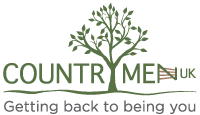History of Countrymen
A short history of Countrymen UK
While Countrymen UK was registered as a charity in 2019, we’ve been on the go since 2012, so we’re a well-established organisation with a sustainable model.
Backstory
Julie Plumley, a qualified social worker and a farmer in her own right, decided to open a Care Farm in Dorset to cater for people of all ages, but mainly young people in their teens and twenties.
Unfortunately, Julie’s dad, John Stockley, was diagnosed with Parkinson’s Disease, which led to a series of events that saw the first Countrymen Club being established in Dorset.
John had been a farmer from the age of thirteen, when he was evacuated at the start of WW2 from his home in Swanage to a sheep farm in Catistock. When the war ended, John decided not to return home, not to return to school, and to make farming his life’s work, which is exactly what he did.
John’s plight
After many decades in farming, a combination of problems made John think about retirement. The first was the outbreaks of brucellosis and foot and mouth disease in the late ‘90s. The second problem was that John was diagnosed with Parkinson’s Disease, which he never referred to by its name – he just called it ‘this thing’ but everyone knew what he meant.
John didn’t want to believe he was ill. He just wanted to live his life and always thought about the future. But his deteriorating health meant that he spent most of his time indoors and only got to see family members, which were mostly women.
Something more was definitely needed
The family felt that John needed more stimulation, to get out of the house and to regain some of his earlier independence, so they did some research and found a local Parkinson’s Group.
John’s attendance only lasted for two visits. He didn’t like it. He didn’t like the fact that he was only switching from one indoor environment at home to another one where the group met. He felt he had little in common with the other group members. He wanted to be outside with people who could share stories about farming and countryside pursuits. After trying another, similar group, he opted out. These groups weren’t for him.
Nothing suitable was available
The family then approached the local community mental health team to ask them about services that were available to men like John who wanted to be outdoors and active, but they were told that there were no such services available.
It was a frustrating time. All the family wanted, and all John wanted, was for him to be with likeminded men who shared some of his experiences and who wouldn’t be a constant reminder of his illness. He was looking for something that would give him back some independence and that would allow his wife some time of her own.
A new direction
Daughter Julie, who had founded Future Roots Care Farm, decided to take things in a different direction. If the services John and his family craved weren’t available, she would make them available, which led to her starting the Countrymen’s Club at Rylands Farm in Dorset. Through word of mouth, they soon had four men attending regularly, including Julie’s dad, John.
The four men had various conditions but, by coming together at a farm-based club, they could leave their conditions at the gate and become involved in activities they had a genuine interest in. John also got to use a mobility scooter which he loved, and he laughed so much when he was using it. The change in John was almost instantaneous. He still didn’t talk about his illness but that didn’t matter – he was more positive, more involved and much more independent.
The Club ran one session each week and it took about 3 years to build up to ten men attending. Throughout this time, Julie realised that they may be targeting the wrong people when trying to recruit new members to the Countrymen’s Club. She felt that targeting local hospitals and community mental health teams may be the wrong way to go. The people who really needed to be contacted were the family Carers. Once this was done, membership of the Club increased more quickly.
The Countrymen’s Club meant as much to Carers as it did for the men themselves. It gave Carers the respite they needed, especially when they realised how active and stimulated their men were. They regained their sense of self and had a real sense of purpose.
Unlike other services, the Carers don’t attend the Countrymen’s Club. It’s a men-only environment as that’s exactly what the men were asking for.
A time of discovery and growth
It was a period of growth for the Countrymen Club, with light lunches being served to the men shortly after their arrival, and new staff and volunteers being appointed.
When the Countrymen Group attracted coverage on local news, the BBC’s Countryfile got in touch and did a film on what the farm was doing. The phone lines went crazy, with people from all over the country wanting to know whether our service was available in their area.
This was when the wider Countrymen UK dream began and, with support from the National Lottery’s Accelerating Ideas Fund, plans were made to spread the successful model of Countrymen around the UK.
Sadly, Julie’s dad, John, passed away shortly after the funding arrived, but his family are comforted by the knowledge that, because of him, other men get to use this service. His legacy lives on.
